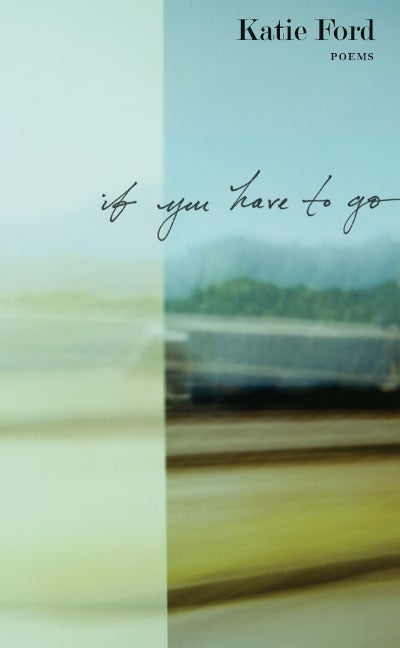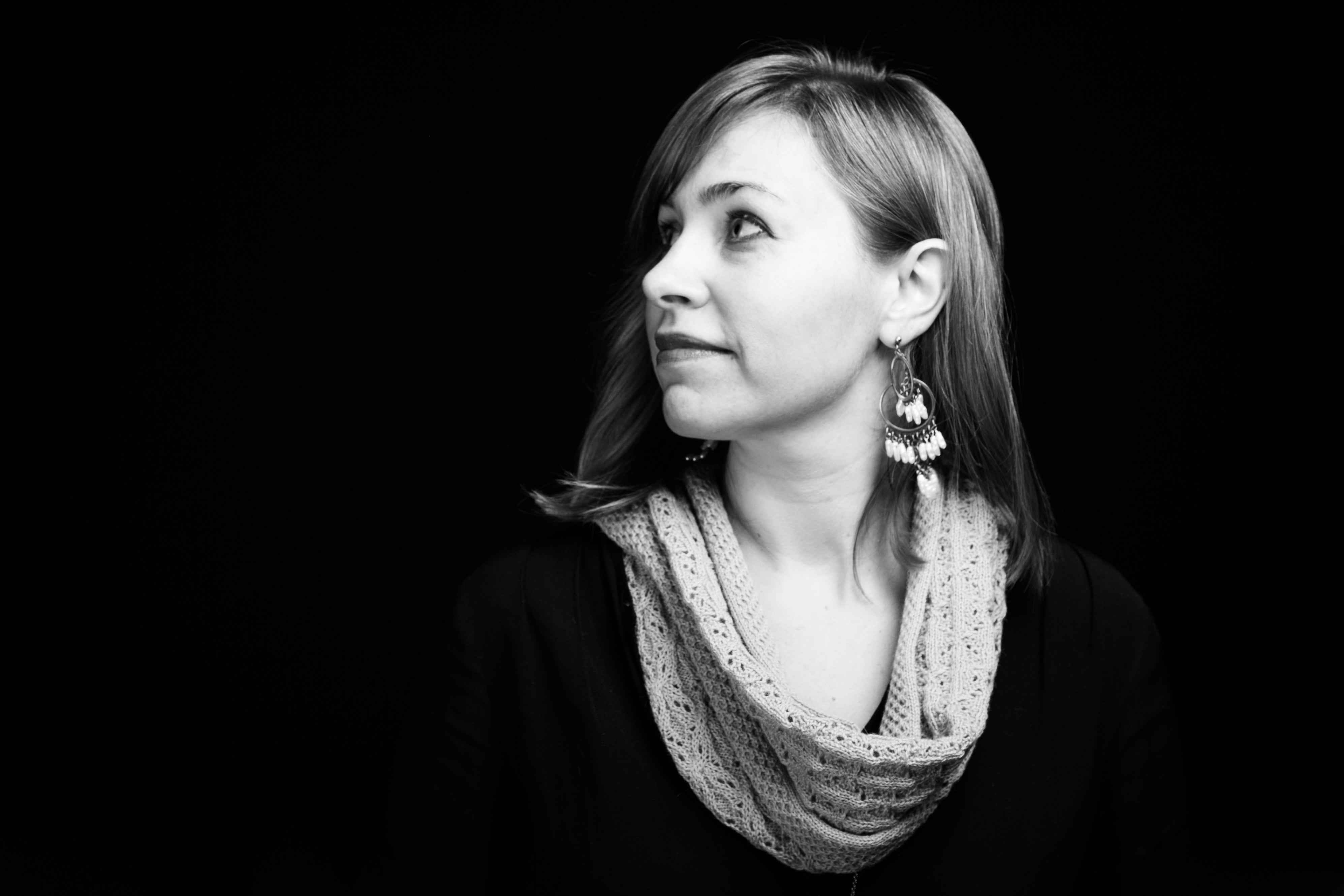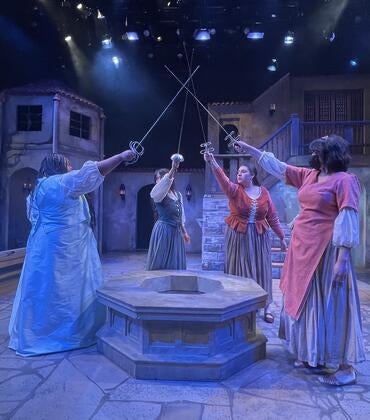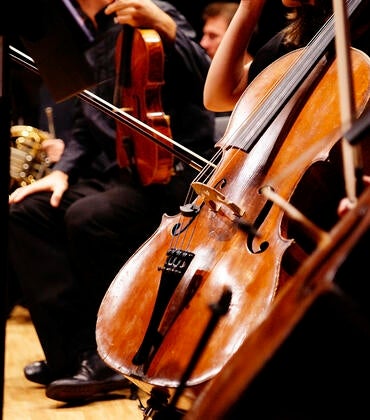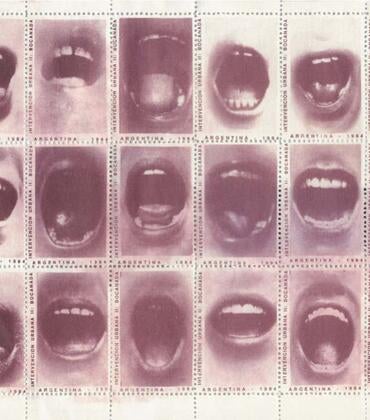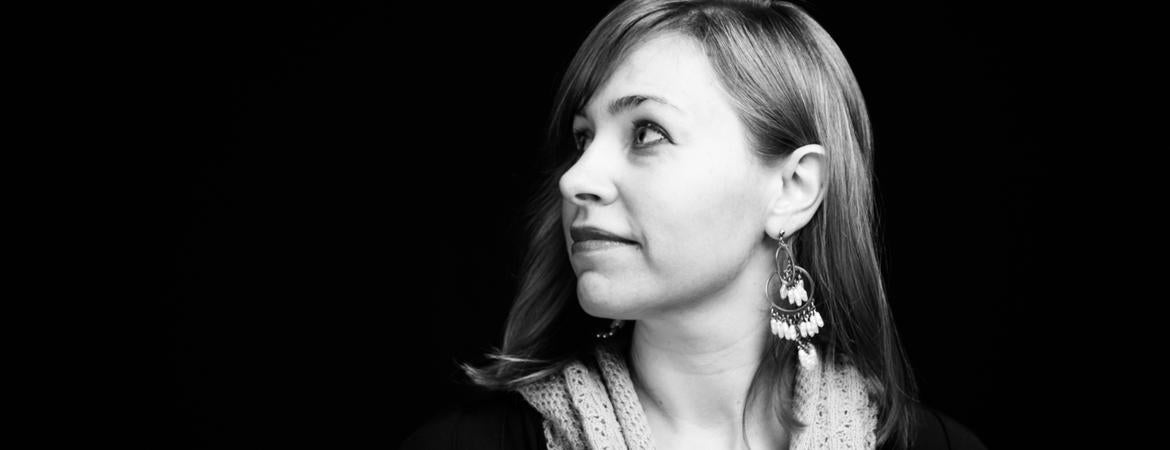
Loneliness, while inherently isolating, is also a universal experience. This dichotomy lies at the heart of poet Katie Ford’s newest collection, “If You Have to Go.” Dominated by a crown of 39 sonnets — each linked by the repetition of the last line of a poem as the first line of the next — the book unfolds as a dreamlike narrative loosely threaded together by one solitary, longing voice.
Ford, a professor of creative writing at UC Riverside, is the author of three previous poetry collections including “Deposition,” “Colosseum,” and the Los Angeles Times Book Prize and Rilke Prize finalist “Blood Lyrics.” “If You Have to Go” was published in August 2018 by Graywolf Press and written over a span of nearly four years, which Ford laughingly remarked was quick for her. But unlike her previous books, the choice to compose the collection primarily as linked sonnets posed structural challenges she hadn’t yet faced.
“As it was unfolding, the crown of sonnets, which is the technical term for this linked form, seemed to be a generative place for me, so I kept successively writing inside of this inherited tradition,” she said. “They were written sequentially, and I realized once I got deeply inside of it that a story was somehow surfacing, and even though it was a kind of dreamscape story, a return of certain figures and characters presented narrative issues that I haven’t had in books I’ve written before.”
The result is a sequence of viscerally charged poems examining disappointment, loss, and the desire for companionship, with the speaker expressing the desperation of aloneness and need for connection in lyrical poems both vulnerable and intimate. This want for companionship is introduced in the first poem in the sonnet sequence in the unlikely form of two horses carved into a comb, with the speaker asserting how the image “adds to me the hope of that number.”
“This actually refers to a real comb I saw in a medieval museum in Naples about 15 years ago,” Ford said. “The horses end up becoming this image of two animal bodies moving together in a kind of idealized form of companionship and intimacy … so they become the first articulation of longing in the book.”
As the speaker muses over the comb, its teeth turned downward become a fence and behind it emerges a kingdom, an idea that features prominently throughout the collection, and with it many recurring themes and figures throughout. Ford, who studied theology at Harvard University in addition to poetry at the University of Iowa, often engages theological ideas in her poems and notes the religious connotations of the word “kingdom,” but also sets out to subvert its normative meanings throughout the collection.
“I’m using ‘kingdom’ as it was passed down as representing a kind of idealized community, but at the same time I’m discussing the problematic nature of the term, so I’m working and reworking the word itself,” she said. “The language about kingdom in the early Christian period was used as a subversive word to designate 'the kingdom of God' as 'inside of you,' not external to the human soul and body. If you were living under a king — or in Rome, an emperor — and you said ‘the kingdom is inside of me,' this is very subversive language. It works against empire, against domination and power.”
With the kingdom comes other iterations of loss and defeat, as in the manifestation of an overworked ox outside the kingdom’s gate, so worn down that “what hasn’t happened to him has happened to none.” Such pointed observations, from the comb, to the ox, to a roach outside a bedroom door, speak to a kind of hyperawareness of that aloneness, and springing from sorrow are utterances fraught with a desire to be heard.
“I think the sense of aloneness in her voice almost careens between the walls of the room that she’s in,” Ford said. “She addresses the home, or the kingdom, but they don’t speak back to her. Nothing speaks back.”
The poems are also intensely corporeal, with frequent references to the speaker’s body and a distinct separation between the emotional experiences of body and mind. There’s a certain physicality to the language, such as when the speaker asserts, “everyone thrashes against a wall in this life.” Also prominent are descriptions of the speaker reacting in ways separate from cognitive choice, as in the line, “no mind makes it do it, my body just falls.”
“These emotional states, they became reflexes,” Ford said. “The body articulates the emotional life, and can teach us how to interpret the world or how to interpret the emotional life … because the mind often isn’t as authentic as the body.”
Lofty with heartbreak, “If You Have to Go” is not without glimmers of hope, as Ford provides a panoramic account of the depth of longing but also the prospect of future companionship.
“I think poetry very often makes people feel less alone,” she said. “It can span huge time gaps and culture gaps and can reach readers with acute intimacy. A poem written by another can become, as a reader, your own utterance, your own articulation. Most poems I like and admire seem to have a kind of voice reaching into a vast space, both finite and infinite, without a sense of arrogance, but a sense of risk to say something to the entire world and entire invisible realm. Speak. Say something.”
Writers Week 2019
Ford will be participating in this year’s Writers Week, held Feb. 4-5 and Feb. 11-16, during which she will be reading from “If You Have to Go” followed by a Q&A. Ford’s session is scheduled for 11:30 a.m. on Feb. 13 in room 1128 of Interdisciplinary Building South. For more information, visit writersweek.ucr.edu.
